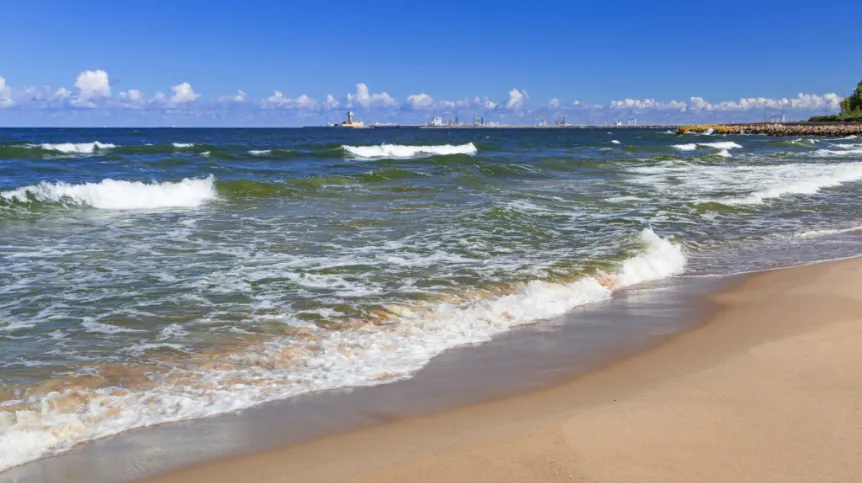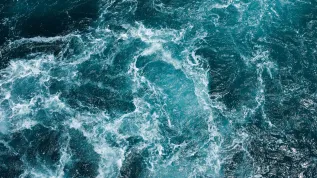
Blooms of cyanobacteria that produce poisonous cyanotoxins, will soon be observed using drones. The technology is being developed by high school students under the supervision of scientists from Gdańsk University of Technology. So far, cyanobacteria have been monitored by analysing water samples and aerial photographs.
In the blooming period, July and August, cyanobacteria produce poisonous cyanotoxins. For this reason, blooms must be detected as soon as possible to be able to quickly determine their position and size. Then, bathing is prohibited in the coastal resorts.
According to the university website, work is underway at Gdańsk University of Technology on the adaptation of an unmanned flying vehicle, drone, to monitor water bodies by simple image analysis. Under the supervision of Dr. Stanisław Raczyński, the work will be conducted by students from the High School No. 3 in Gdynia. Students from the Science Club SKALP at Gdańsk University of Technology mentor younger colleagues.
"Currently the monitoring of cyanobacterial blooms is carried out primarily by laboratory analysis of water samples collected at the shore or from vessels. More comprehensive studies are carried out based on satellite and aerial images - but these are very expensive and inaccurate when adverse weather conditions prevail. Drones seem like a very good option, because the cost of purchase is not excessive" - emphasised the project supervisor, Dr. Stanisław Raczyński from the Department of Automatic Control at the Faculty of Electronics, Telecommunications and Informatics, Gdańsk University of Technology.
According to Gdańsk University of Technology, the tasks that high school students will perform under the supervision of students-mentors are "relatively simple but diverse and interdisciplinary".
The project is divided into four stages. First, high school students will try to integrate the drone with a simple on-board computer, camera and altimeter. The second stage of the project will include test photo sessions and development of image analysis methods. Youth will also participate in trainings on cyanobacteria. The workshop will be prepared by the Maritime Institute in Gdańsk.
The third stage of the project consists of specific environmental experiments. During the day-long trips, young researchers will take a series of images from different altitudes and in different lighting conditions. In addition, they will take samples of water, which will be transferred to the Marine Institute for quantitative and qualitative analysis. The results of these analyses will be used to calibrate and verify the developed image analysis methods. In the last stage of the project, participants will develop the collected results, prepare technical documentation and scientific publications.
The project will also allow to assess the possibility of visual detection of other situations in the marine environment, such as oil spills or monitoring of seal populations in the Gulf of Gdańsk.
The project is part of the "University of the Young Inventors" programme of the Ministry of Science and Higher Education, and will be completed in October 2015.
PAP - Science and Scholarship in Poland
ekr/ mki/
tr. RL













